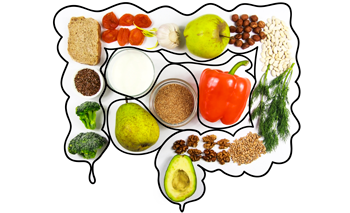Research in focus
PAN Sweden works to achieve our vision:
"Sustainably produced food with proven health benefits should become the consumer’s first choice."
Main areas for our research
With health and well-being at the center, PAN Sweden has identified four key challenges:
Health and Plant-Based Diets
A diet with more plant proteins must be as healthy as it is sustainable. Although many believe plant-based food is healthier than meat, this is not scientifically proven. The effects are also influenced by lifestyle factors such as higher fiber intake and generally healthier habits among consumers. This uncertainty can undermine trust in sustainable diets and complicate support from public health authorities.
To achieve the sustainability goals of Agenda 2030, a higher proportion of foods containing plant-based proteins is required – as a complement to or replacement for meat.
PAN Sweden works to create evidence-based knowledge about the health effects of plant-based proteins, thereby strengthening consumers’ ability to make informed choices.
Bioavailability and Antinutrients
Unprocessed plant-based foods can contain antinutrients that inhibit the absorption of essential nutrients. They often have low bioavailability, making it harder for the body to utilize proteins and minerals – especially during critical life stages such as adolescence, pregnancy, breastfeeding, and older age.
PAN Sweden deepens knowledge about how the human body processes plant-based proteins and their impact on health and well-being – a cornerstone of an evidence-based dietary transition.
Sustainable Production and Raw Materials
A resource-efficient transition throughout the entire food chain requires knowledge about raw materials, processing techniques, and applications that deliver healthy, tasty, and consumer-friendly products. Today, many plant-based proteins used in Swedish foods are based on imported sources such as soy, while Swedish legumes are mainly used as animal feed.
PAN Sweden contributes knowledge that enables a shift to sustainable production of plant-based foods for humans – focusing on Swedish raw materials and innovative solutions.
Interdisciplinary Research and Innovation
An effective transition requires research that bridges the gap between food science, nutrition, and social sciences. This provides both private and public sectors with validated methods and tools to produce and consume more sustainable and healthy foods.
PAN Sweden strengthens collaboration between academia, industry, and the public sector – coordinated by Örebro University – to create long-term profitable solutions and improved public health through the concept of “precision nutrition.”



